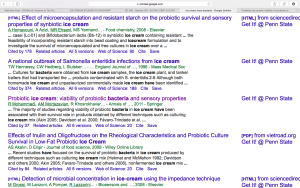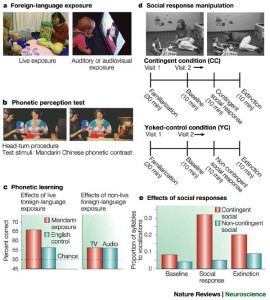Dogs are humans friends and can help us in a great many areas if trained properly: companying depressed or sick people, guarding the yard, smelling cancer, guiding the blind people, etc. Among these, I am most curious about dogs’ smelling cancer. I learn from this article that though the 23,040 breaths we take daily drag in a universe of information, our olfactory powers are not even mediocre compared to a dog’s.
This cute and informative video from TED-Ed tells us that dogs have 300 million olfactory receptor cells compared to humans’ 5 million of them. Also, sensation of smell take up more brain space in dogs than humans. Dogs really “see” with their noses!
But can this powerful nose really smell cancer, a disease hard to treat? Researchers conducted a study of 93 patients consecutively admitted to hospital with suspected lung cancer– they sampled exhaled breath and urine, and performed the canine olfactory test (let dogs smell the samples and trained them to sit beside the sample of cancer) in a double-blinded manner. In the end, sensitivity and specificity were outcome measures. It turned out that “with 99% sensitivity, the olfactory test demonstrated that dogs have the ability to distinguish cancer patients from healthy individuals.” I believe the study is rather convincing because it is a well designed double blind control trial and the number of objects can be accepted to draw conclusions. Plus, with a 99% sensitivity, the test rather reliable and should be qualified as a promising tool to diagnose cancer. However, the olfactory test still has progress to make: “the main challenge is to determine whether the test can sufficiently discriminate between patients at risk, patients with benign disease, and patients with malignant disease.” In other words, though dogs can smell and tell who have cancer, they cannot figure out what phase of the disease the patient is going through.
Another study intended to determine whether dogs can be trained to identify people with bladder cancer on the basis of urine odour more successfully than would be expected by chance alone. Participants include 36 male and female patients (age range 48-90 years) presenting with new or recurrent transitional cell carcinoma of the bladder (27 samples used for training; 9 used for formal testing); 108 male and female controls (diseased and healthy, age range 18-85 years—54 samples used in training; 54 used for testing). As a result, “the dogs correctly selected urine from patients with bladder cancer on 22 out of 54 occasions. This gave a mean success rate of 41%, compared with 14% expected by chance alone.” So scientists concluded that dogs can be trained to distinguish patients with bladder cancer on the basis of urine odor more successfully than would be expected by chance alone. Besides proving dogs are able to smell cancer, this study also demonstrates to us that dogs can be trained to complete the formidable task with a higher successful rate than solely by chance. In this way, we don’t have to worry about the lack of such “smart dogs” which can provide us great help, since we can always train new ones when necessary.
Another question I’m thinking about is that if doctors know what chemical components or molecules dogs recognize as symbols of cancer when smelling, they can trace the substance that’s typical to cancer and maybe figure out means to clean these “evil things” from the patients’ bodies, then cancer is cured. An article states that “Volatile SNOs (vSNOs) are proposed to be the source of the significant smell of cancer.” A sniffer dog was trained with the synthetic vSNOs, and the results of the tests indicate that synthetic and cancer smells are very similar or even the same. Scientists are thrilled that these findings can serve as clues for future measurement methods and establish methods for cancer diagnosis and so am I.
Andrew mentioned that cancer is one of the topics we are going to talk about in class and I believe if cancer is really curable, science will prove it one day and yes, to the extent that science is powerful enough to prove anything.


















